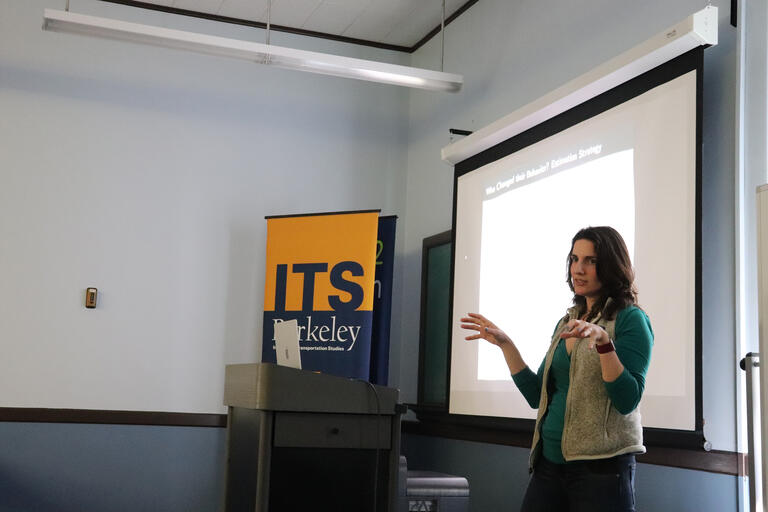Thank you to Shoshana Vasserman, Assistant Professor, Economics, Center Fellow, Stanford Institute for Economic Policy Research, Stanford Graduate School of Business, who presented Can Usage-Based Pricing Reduce Congestion: Evidence from a Field Experiment at the Institute of Transportation Studies Transportation Seminar on Friday, April 11, 2025.
Abstract: This paper analyzes the effects of the largest field experiment to date that incentivizes drivers to limit driving during peak hours and congested areas via usage-based congestion pricing. The experiment monitored the driving behavior of 10,000 Israeli drivers who were recruited over the course of 2020. During the first six months of a driver’s participation in the experiment, their driving behavior is monitored and recorded; afterwards, drivers receive an annual budget and are charged for each kilometer driven during historically congested times in congested areas. Whatever remains in each driver’s budget is paid to them a year later. We use comprehensive data on driving behavior of participating drivers over the course of 2020 and 2021 to evaluate how usage-based congestion pricing affects driving behavior. The staggering of driver recruitment facilitates identifying treatment effects via a difference-in-differences approach. We find that drivers decrease their congested driving behavior by 10-20% across a myriad of outcomes designed to detect both extensive margin (i.e. whether to take a trip) and intensive margin (i.e. when to take a trip) responses. We also find that there is significant treatment effect heterogeneity across drivers that can be predicted by pre-treatment driving behavior. The most affected drivers tend to be those who contributed more to congestion and who appear to have more flexibility in their driving choices and easier access to public transit, but they are not disproportionately socioeconomically advantaged or disadvantaged. We then estimate a model of demand for taking “habitual” trips by car at different times given different travel durations and costs. Using this model and an estimated relationship between traffic densities and speeds on major highways, we consider the equilibrium impacts of congestion pricing on network-wide speeds and welfare.
Bio: Dr. Vasserman is an Assistant Professor of Economics at the Stanford GSB and a Faculty Research Fellow at the National Bureau of Economic Research and the Stanford Institute for Economic Policy Research. Her research applies an Industrial Organization lens to topics such as risk and profit sharing, information disclosure and price controls across policy settings including transportation, online media markets and pharmaceuticals. She holds a Ph.D. (Economics), Harvard University and an S.B. (Mathematics; Economics), Massachusetts Institute of Technology.









